De Amerikaanse toneelschrijver Neil Simon werd op 4 juli 1927 geboren in New York. Zie ook alle tags voor Neil Simon op dit blog.
Uit: The Odd Couple
“ROY. She can do it, you know.
OSCAR. What?
ROY. Throw you in jail. For non-support of the kids.
OSCAR. Never. If she can’t call me once a week to aggravate me, she’s not happy. (Crosses to bar.)
MURRAY. It doesn’t bother you? That you can go to jail? Or that maybe your kids don’t have enough clothe or enough to eat?
OSCAR. Murray . . . Poland could live for a year on what my kids leave over for lunch! . . . Can we play cards? (Refills drink.)
ROY. But that’s the point. You shouldn’t be in this kind of trouble. It’s because you don’t know how to man-age anything. I should know, I’m your accountant.
OSCAR. (Crossing to table.) If you’re my accountant, how come I need money?
ROY. If you need money, how come you play poker?
OSCAR. Because I need money.
ROY. But you always lose.
OSCAR. That’s why I need the money! . . . Listen, I’m not complaining. You’re complaining. I get along all right. I’m living.
ROY. Alone? In eight dirty rooms?
OSCAR. If I win tonight, I’ll buy a broom.
(MURRAY and SPEED buy chips from VINNIE, and Mtm-w begins to shuffle the deck for a game of draw.)
ROY. That’s not what you need. What you need is a wife.
OSCAR. How can I afford a wife when I can’t afford a broom?
ROY. Then don’t play poker.
OSCAR. (Puts down drink, rushes to ROY and they struggle over the bag of potato chips, which rips showering EVERYONE, who ALt. begin to yell at one another.) Then don’t come to my house and eat my potato chips?
MURRAY. What are you yelling about? We’re playing a friendly game.”
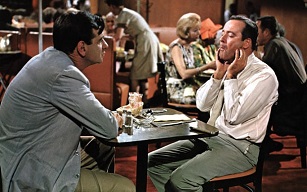
Neil Simon (New York, 4 juli 1927)
Jack Lemmon en Walter Matthau in de gelijknamige film uit 1968
De Belgische schrijver, criticus en letterkundige Paul de Wispelaere werd geboren in Assebroek op 4 juli 1928. Zie ook alle tags voor Paul de Wispelaere op dit blog.
Uit:Romantiek en ironie bij Simon Vestdijk
“Vestdijks romantische aanleg en eklektische belangstelling gaat samen met een dialektisch en sterk kontrapunterend denken. Hoezeer dit ook in zijn essayistisch en kritisch werk het geval is, heeft J.J. Oversteegen overtuigend gedemonstreerd in de speciale aflevering van Raster. In de gesprekken met Nol Gregoor heeft Vestdijk zich zelf trouwens nadrukkelijk over zijn skeptische levenshouding uitgelaten: ‘Dat zal waarschijnlijk wel samenhangen met m’n sterke neiging tot relativisme, die dan door de schok, die ongeveer in 1925 Nietzsche bij mij teweegbracht, alleen maar in hoge mate versterkt kon worden, een breidelloos relativisme, dat tenslotte zo consequent kan worden dat het op zichzelf weer iets absolutistisch krijgt. Dat is wat Nietzsche perspectivisme noemt. Dat er wel misschien een waarheid bestaat, maar dat de waarheid voor het menselijke altijd vanuit een bepaald perspectief benaderd wordt zodat je eigenlijk niets met zekerheid kan weten. Zodat je eigenlijk alleen maar voor jezelf iets kan nastreven. En begrijpen en zien en opvatten.’ Ik blijf bij dit citaat even stilstaan omdat het zijn belang heeft meer bepaald voor Vestdijks opvatting van de historische roman. Het is bekend dat hij zich voor het schrijven van een historische roman zorgvuldig dokumenteert, maar het ophangen van een zgn. objektief beeld van een brok werkelijkheid uit het verleden (naar de wijze van Flaubert b.v.) is toch niet zijn hoofdbekommernis. Veeleer is hij als auteur geinteresseerd in de tegenstrijdige mogelijkheden die naast elkaar in hetzelfde wezen of dezelfde situatie verborgen liggen. Voor Vestdijk is het potentiële steeds belangrijker dan het werkelijke of verwezenlijkte. Van die aard is tenslotte ook het Proustiaanse Ina Damman-motief, dat in allerlei variaties overal in zijn werk te vinden is: voor Anton Wachter was de potentiële Ina Damman, de verbeeldingsmogelijkheden die van haar uitgingen, van meer waarde dan het werkelijke meisje dat hij op school ontmoette. Polyvalentie, in tema’s en motieven zowel als in identiteit en gedragingen van de personages, kenmerkt vooral ook de meeste historische romans. Vandaar ongetwijfeld ook de keuze van hoofdpersonen over wie historisch weinig eksakte gegevens bestaan, zoals El Greco en Pilatus, of van tijdperken waar myte en geschiedschrijving nog door elkaar lopen, zoals het vóór-Homerische Griekenland.”
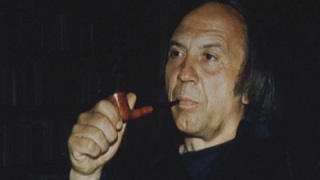
Paul de Wispelaere (4 juli 1928 – 2 december 2016)
De Oostenrijkse dichteres, schrijfster en kunstenares Christine Lavant werd geboren op 4 juli 1915 in Groß-Edling als Christine Thonhauser. Zie ook alle tags voor Christine Lavant op dit blog.
Versuche den winzig gewordenen Mond
Versuche den winzig gewordenen Mond
aus dem Himmel zu blasen.
Dein Atem reicht nicht einmal dafür noch aus!
Wie willst du dann die aufgeloderte Sonne
über deinem Herzen kühler machen
oder gar sie verschieben?
Sage zu deinem Herzen, daß früher oder später
alle Hexen verbrennen müssen.
Auch die guten entgehen dem Feuer nicht,
weil Gott ihre magische Asche braucht,
um seine Erwählten damit zu salben.
Sage, er haßt diese Asche nicht,
weil sie trotz allem aus Unschuld kommt
und vielen gemeisterten Leiden.
Lehre, wenn du jetzt Atem holst,
dein Herz in die Mitte der Sonne treten
und tilge gänzlich aus deinem Blut
den Namen der Hölle.
Niemand glaubt dir das Wort –;
und das, was dich brennt,
weiß allein seinen eigenen großen Namen,
der erschütternder ist als alle Zeichen am Himmel.
Wieder brach er bei dem Nachbarn ein
Wieder brach er bei dem Nachbarn ein,
und ich hatte Tür und Fenster offen,
meine Augen waren vollgesoffen
wie zwei Schwämme vom Verlassensein.
Dumm verknäulte sich in meinem Mund
Schluchzen, Bitten und verbohrtes Drohen,
während drüben schon die Hühner flohen
samt der Katze und dem alten Hund.
Doch er kam nicht, nahm sich wieder nur
einen, der noch gerne leben wollte,
und die Monduhr, die verrückte, rollte
meine Stunde rasch aus seiner Spur
Bitter trocknen mir die Augen ein,
bitter rinnt der Schlaftrunk durch die Kehle,
bitter bet´ ich für die arme Seele
und zerkaue mein Verlassensein.
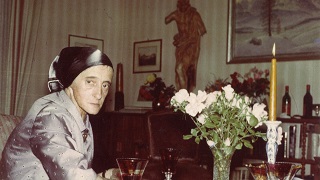
Christine Lavant (4 juli 1915 – 7 juni 1973)
De Franse schrijver Sébastien Japrisot (pseudoniem van Jean-Baptiste Rossi) werd geboren op 4 juli 1931 in Marseille. Zie ook alle tags voor Sébastien Japrisot op dit blog.
Uit: Piège pour Cendrillon
“Ou bien encore, je retrouvais sur moi l’odeur écœurante de cette eau de Cologne bon marché dont il inondait ses cheveux. Micky, elle aussi, l’avait remarquée. Votre signature, m’avait-il dit, était très correcte, j’ai vérifié tout de suite à la lumière du tableau de bord. Même que vous m’avez demandé ce que je mettais sur les cheveux. C’est un truc spécial, ça vient d’Algérie j’ai fait mon service là-bas. Vous voyez, je n’inventerais pas ça !
Il avait peut-être dit la marque de cette eau de Cologne à Micky. Mais à moi, dans le garage, il ne l’avait pas dite – ça n’avait pas de nom. Plus que la pensée du mal qu’il pouvait nous faire, à Jeanne et à moi, cette odeur que je retrouvais ou croyais retrouver sur mes gants, sur mes bras, m’angoissait au point de devoir allumer ma lampe. Le maître chanteur devait rôder autour de la maison, autour de moi. Il me surveillait comme son bien : une mémoire, un esprit qui lui appartenait. »
(…)
« Les jours qui suivirent, je fus quelqu’un qu’on déplace, qu’on alimente, qu’on roule dans les couloirs qui répond oui en fermant les yeux une fois, non deux fois, qui ne veut pas crier, qui hurle quand on refait ses pansements, qui essaie de faire sortir par ses yeux les questions qui l’oppressent, qui ne peut ni parler, ni bouger, une bête dont on nettoie le corps avec des crèmes, l’esprit avec les piqûres, une chose sans mains, sans visage : personne. »
(…)
« Son visage, son attitude ne m’étaient pas réellement inconnus. Et une seconde, je crus que le passé allais resurgir, en une seule lourde vague qui m’assommerait. Ce devait être l’étourdissement d’avoir tourné, ou la présence inattendue, devant moi, d’une femme qui m’était familière comme un personnage rencontré dans un rêve.”
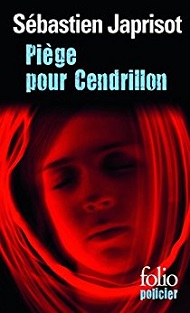
Sébastien Japrisot (4 juli 1931 – 4 maart 2003)
De Oostenrijkse schrijver, regisseur, filmmaker en fotograaf Walter Wippersberg werd geboren op 4 juli 1945 in Steyr. Zie ook alle tags voor Walter Wippersberg op dit blog.
Uit: 14 Monate, 14 Jahre
„Noch denke ich an Thomas W.s Drehbuch, mit dem er zum ersten Diplom antreten will, und ob das auch richtig ist, was ich ihm dazu geschrieben hab.
Noch denke ich an die Jurysitzung für den Landeskulturpreis, die am Donnerstag stattgefunden hat, wo der Preis einstimmig Thomas Baum zuerkannt wurde, der noch nichts weiß davon.
Am Mittwoch hab ich den neuen Roman an den Verlag geschickt, und mir drängt sich diese viel zu pathetische Formulierung auf: Die Wunden, die er gerissen hat, sind noch nicht geschlossen. So stimmt das natürlich nicht, aber irgendwas ist tatsächlich noch offen. Jener große Topf, darin das Unbewußte vor sich hin köchelt und blubbert und aus dem, wenn wir schreiben, all das kommt, worüber wir uns, wenn’s erst da ist, selber wundern. Zuerst läßt sich der Deckel gar nicht so heben, aber noch schwerer ist es, ihn wieder auf den Topf zu setzen, wenn man, was daraus aufsteigt, nicht mehr braucht, weil (wie in diesem Fall) der Roman fertiggeschrieben ist. So wird noch ein Weile ins Bewußtsein treten, was ich jetzt dort gar nicht mehr haben will, und ein paar Nächte mit höchst seltsamen Träumen stehen mir noch bevor.
Auch sonst läuft der Motor (das Hirn) immer noch auf hohen Touren, aber im Leerlauf. Stoppen kann man ihn nicht, er muß langsam auslaufen.
Das mit den Wunden, vorhin schnell hingeschrieben, stimmt wenigstens zum Teil. Zwei Jahre, genau zwei Romane und ein Drehbuch lang, hab ich mich jetzt mit Figuren von höchst unappetitlich rechtsextremer, wenigstens autoritärer Gesinnung schreibend abgegeben und insofern auch eingelassen, als man, wenn man sie beschreiben und glaubwürdig handeln lassen will, versuchen muß, in ihre (kranken?) Gehirne hineinzukriechen. Sowas hinterläßt tatsächlich Spuren, Wunden merkwürdiger Art, in der eigenen Psyche.“
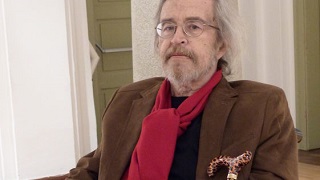
Walter Wippersberg (4 juli 1945 – 31 januari 2016)
De Nederlandse schrijver Rob van Erkelens werd geboren in Den Haag op 4 juli 1963. Zie ook alle tags voor Rob van Erkelens op dit blog.
Uit:Megalofoob
“Oké. Genoeg over kleine dingen, genoeg gepield op de vierkante centimeter. Genoeg over nano, laten we het hebben over giga. Enough about you, let’s talk about me. (smiley) En ik zeg: grootte doet ertoe. Afmetingen. Omvang. Volume. Size matters, zeggen de Luxemburgers.
Het doet ertoe hoe groot iets is. Ik heb er lang over nagedacht, heb mezelf op de divan uitgestrekt en geluisterd naar de weerkaatsing van mijn stem tegen het plafond van de psychiater-spreekkamer.
Beste mevrouw P,
Soms denk ik dat ik krankzinnig word omdat er zo veel is – zo veel is van alles.
Je kijkt naar een voetbalwedstrijd, een eenvoudige poulewedstrijd in de Champions League, en je hoort: breedtepass van Sandro.
Niks aan de hand. Breedtepass van Sandro.
Chicharito wordt vastgehouden door Piqué, maar dat wordt niet gezien door de scheids.
Nog steeds niets aan de hand. We liggen daar niet wakker van.
Vastgehouden. Niet gezien. We kijken verder.
Dan het besef dat op dit moment, het moment dat Chicharito wordt vastgehouden door Piqué zonder dat het wordt gezien door de scheids, datzelfde wordt gezegd in 209 landen. Precies datzelfde wordt gezegd in meer dan tweehonderd landen op hetzelfde moment. In minstens 150 talen. En het wordt gehoord in 209 landen. Door zoveel miljard mensen.
Daar begin ik te krimpen. Ik voel mezelf kleiner worden en verschrompelen, terwijl alles buiten mij groter wordt en uitdijt.”
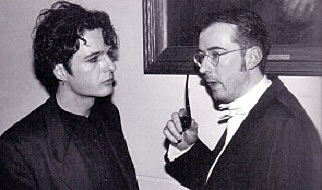
Rob van Erkelens (Den Haag, 4 juli 1963)
Hier met Ronald Giphart (rechts) op het boekenbal in 1994
De Franse dichter, schrijver en journalist Robert Desnos werd geboren op 4 juli 1900 in Parijs. Zie ook alle tags voor Robert Desnos op dit blog.
The Voice of Robert Desnos
So like a flower and a current of air
the flow of water fleeting shadows
the smile glimpsed at midnight this excellent evening
so like every joy and every sadness
it is the midnight past lifting its naked body above belfries and poplars
I call to me those lost in the fields
old skeletons young oaks cut down
scraps of cloth rotting on the ground and linen drying in farm country
I call tornadoes and hurricanes
storms typhoons cyclones
tidal waves
earthquakes
I call the smoke of volcanoes and the smoke of cigarettes
the rings of smoke from expensive cigars
I call lovers and loved ones
I call the living and the dead
I call gravediggers I call assassins
I call hangmen pilots bricklayers architects
assassins
I call the flesh
I call the one I love
I call the one I love
I call the one I love
the jubilant midnight unfolds its satin wings and perches on my bed
the belfries and the poplars bend to my wish
the former collapse the latter bow down
those lost in the fields are found in finding me
the old skeletons are revived by my voice
the young oaks cut down are covered with foliage
the scraps of cloth rotting on the ground and in the earth
snap to at the sound of my voice like a flag of rebellion
the linen drying in farm country clothes adorable women
whom I do not adore
who come to me
obeying my voice, adoring
tornadoes revolve in my mouth
hurricanes if it is possible redden my lips
storms roar at my feet
typhoons if it is possible ruffle me
I get drunken kisses from the cyclones
the tidal waves come to die at my feet
the earthquakes do not shake me but fade completely
at my command
the smoke of volcanoes clothes me with its vapors
and the smoke of cigarettes perfumes me
and the rings of cigar smoke crown me
loves and love so long hunted find refuge in me
lovers listen to my voice
the living and the dead yield to me and salute me
the former coldly the latter warmly
the gravediggers abandon the hardly-dug graves
and declare that I alone may command their nightly work
the assassins greet me
the hangmen invoke the revolution
invoke my voice
invoke my name
the pilots are guided by my eyes
the bricklayers are dizzied listening to me
the architects leave for the desert
the assassins bless me
flesh trembles when I call
the one I love is not listening
the one I love does not hear
the one I love does not answer.
Vertaald door William Kulik
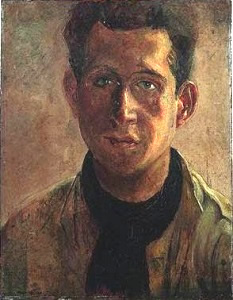
Robert Desnos (4 juli 1900 – 8 juni 1945)
Portret door George Malkine, 1926
De Amerikaanse dichter en schrijver Nathaniel Hawthorne werd geboren op 4 juli 1804 in Salem, Massachusetts. Zie ook alle tags voor Nathaniel Hawthorne op dit blog.
Uit:The Snow-Image (The Canterbury Pilgrims)
“The summer moon, which shines in so many a tale, was beaming over a broad extent of uneven country. Some of its brightest rays were flung into a spring of water, where no traveller, toiling up the hilly road beside which it gushes, ever failed to quench his thirst. The work of neat hands and considerate art, was visible about this blessed fountain. An open cistern, hewn and hollowed out of solid stone, was placed above the waters, which filled it to the brim, but, by some invisible outlet, were conveyed away without dripping down its sides. Though the basin had not room for another drop, and the continual gush of water made a tremor on the surface, there was a secret charm that forbade it to overflow. I remember, that when I had slaked my summer thirst, and sat panting by the cistern, it was my fanciful theory, that Nature could not afford to lavish so pure a liquid, as she does the waters of all meaner fountains.
While the moon was hanging almost perpendicularly over this spot, two figures appeared on the summit of the hill, and came with noiseless footsteps down towards the spring. They were then in the first freshness of youth; nor is there a wrinkle now on either of their brows, and yet they wore a strange old fashioned garb. One, a young man with ruddy cheeks, walked beneath the canopy of a broad brimmed gray hat; he seemed to have inherited his great-grand-sire’s square skirted coat, and a waistcoat that extended its immense flaps to his knees; his brown locks, also, hung down behind, in a mode unknown to our times. By his side was a sweet young damsel, her fair features sheltered by a prim little bonnet, within which appeared the vestal muslin of a cap; her close, long waisted gown, and indeed her whole attire, might have been worn by some rustic beauty who had faded half a century before. But that there was something too warm and life-like in them, I would here have compared this couple to the ghosts of two young lovers, who had died long since in the glow of passion, and now were straying out of their graves to renew the old vows, and shadow forth the unforgotten kiss of their earthly lips, beside the moonlit spring.”
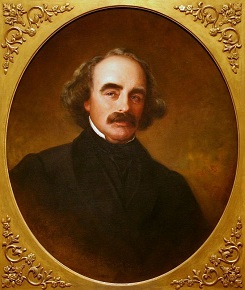
Nathaniel Hawthorne (4 juli 1804 – 19 mei 1864)
Portret door Gottlieb Leutze, 1862
De Amerikaanse schrijver, literair criticus en hoogleraar Lionel Trilling werd geboren op 4 juli 1905 in New York. Zie ook alle tags voor Lionel Trilling op dit blog.
Uit: E.M. Forster
« Of Forster’s five novels, « The Longest Journey » is by conventional notions the least perfect—the least compact, the least precisely formed. Yet although Forster himself says that “it is a novel which most readers have dismissed as a failure,” it is perhaps the most brilliant, the most dramatic and the most passionate of his works. In its arbitrary de-partures from the proprieties of the modern novel there is a genuine refreshment and even a special claim upon our affections. Those of us who respond to this claim will grant that the book is not a perfect whole, but we feel that it does not so much fall apart as fly apart: the respon-sive reader can be conscious not of an inadequate plan or of a defect in structure but rather of the too-much steam that blows up the boiler. The story opens with a metaphysical discussion. A group of Cambridge undergraduates are belaboring the problem which fascinates all young students of philosophy, whether a thing really exists, really is there, if no observer is pres ent to see it. One of the disputants, Stewart Ansell—he is not the hero but he is one of the heroic people in the story —insists that the cow ( they have chosen a cow as example, rather than the table consecrated to such discussions) is really there; others disagree. They are not especially expert in their argument and they proceed chiefly by the reiter-ation of their opinions. The scene, delightful but appar-ently trivial, is a statement of what the story is about: it is about reality—appearance and reality—and the word “real” recurs again and again in the novel. Few stories are metaphysical and few begin with meta-physical discussions, but many of the best stories deal with just this problem of appearance and reality. It is, indeed, one of the great themes of literature. It is what much of the Odyssey is about; Oedipus Rex and Don Quixote deal with it preeminently; it is Shakespeare’s great subject in Hamlet, Othello and Lear, as well as in Troilus and Cres-sida, The Winter’s Tale and The Tempest; it is the essen-tial matter of Faust; it is everlastingly teasing Tolstoy. It is not “truth” that these stories deal with; reality is a more exact concept than truth and simple people are more inter-ested in it than in truth; reality is the word we use for what can be relied on, felt, pushed against. It is what is thick, and lasts. The discussion of reality is interrupted by the arrival of a young woman. She is the guest of the undergraduate who is host to the others. Rickie Elliot, having invited Agnes Pembroke and her brother Herbert for a visit, has quite forgotten to meet them or provide for them.”
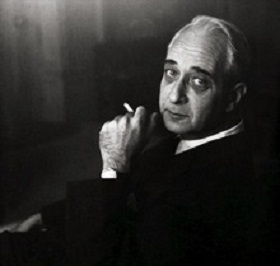
Lionel Trilling (4 juli 1905 – 11 mei 1975)
Zie voor nog meer schrijvers van de 4e juli ook mijn blog van 4 juli 2014 en ook mijn blog van 4 juli 2011 deel 2.

1 thoughts on “Neil Simon, Paul de Wispelaere, Christine Lavant, Sébastien Japrisot, Walter Wippersberg, Rob van Erkelens, Robert Desnos, Nathaniel Hawthorne, Lionel Trilling”
De commentaren zijn gesloten